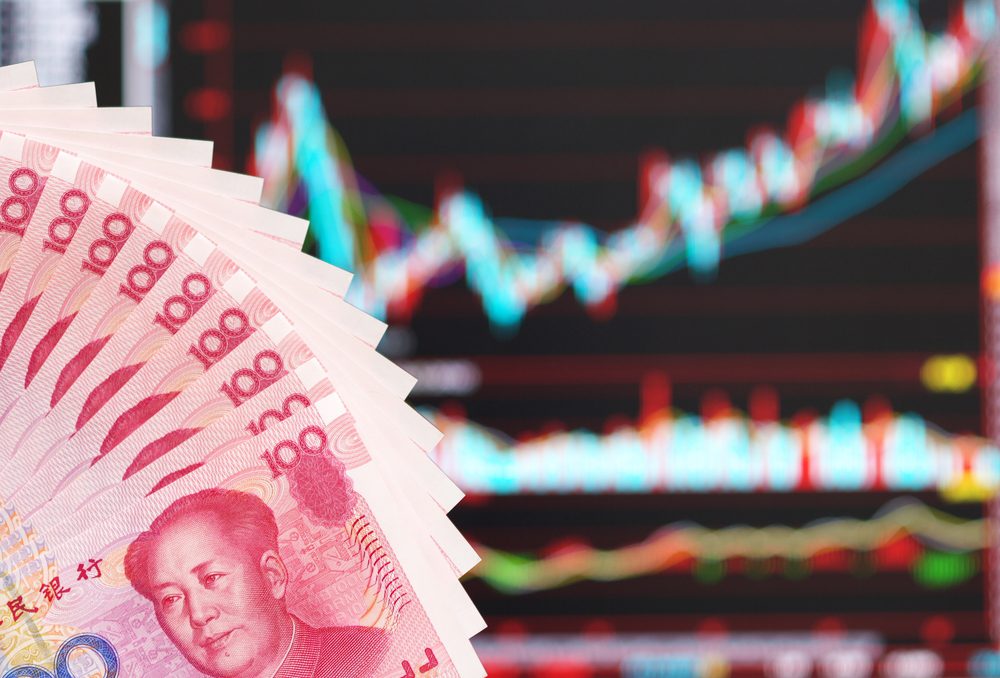Alibaba's $25 billion IPO in September, made it the largest in history, and on 11.11 Chinese website made 9 billion $ in one day. China's growing market is becoming one of the world's biggest. Click to find out more about China's biggest potential stocks.
Back in 1999, not many people might have taken note when a former teacher named Jack Ma launched a business-to-business portal via the website Alibaba.com. Yet 15 years later, the scenario has changed drastically. The success of Alibaba’s recent IPO in the US, where it made $25 billion in September, made it the largest IPO in history. This achievement put in the shade the IPO’s of the Agricultural Bank of China (2010) and ICBC (2006). These IPOs raised about $22 billion each.
Alibaba might have created a frenzy only recently in the US. However, in the intervening years, it has become a big player in the Chinese market. Estimates suggest that the Group’s websites account for over 80 percent of the nation’s online sales. However, digging deeper beneath the frenzy surrounding Alibaba’s debut on the New York Stock Exchange, will reveal two definite facts. These include:
- The interest across the world in gaining access to the massive Chinese markets and,
- The complete lack of transparency, which makes it hard for investors to invest in China
The Attractions of Investing in Chinese Stocks
For the uninitiated, China forbids foreign ownership in any company. Therefore, all the investors who purchased shares in Alibaba’s IPO, actually purchased shares in a shell corporation based in the Cayman Islands (i.e. Alibaba Group Holding Limited).
For many years, American investors bet a lot of money on Chinese stocks. This reached its zenith when the market peaked in the fall of 2008. However, the market never really took off. Therefore, several investors ended up losing their money. However, with the success of Alibaba, more and more investors are increasingly looking at investing in Chinese stocks.
McKinsey estimates that by 2020, China’s e-commerce market will have a value of about $450 – 650 billion. This will bring the Chinese e-tail market at par with the combined size of the e-tail markets in the US, Japan, the UK, Germany and France. Estimates suggest that China has over 630 million internet and mobile internet users. Currently, China already has the largest number of internet users in the world. This is despite the fact that internet penetration in China is just around 47 percent. As internet penetration continues to rise, investors will continue to regard China as a market worth investing in.
The Top Chinese Stocks You Must Know About
Many investors invest in stocks to earn profits. The investors, who spent $68 for each share they purchased in Alibaba during its IPO, are richer by $20 per share today. However, investing also means that you must refrain from placing all your eggs in the same basket. If you’re keen on investing in Chinese stocks, here are some other Chinese stocks that you must stay tuned to.
- Baidu, Inc (NYSE: BIDU): Baidu is the largest internet search provider in China. With a market cap of about $76 billion, it is much smaller in comparison to Google. However, the growth in the Chinese internet industry will have a positive impact on the fortunes of Baidu as well. Currently, Baidu is making large forays into the mobile sector. By all accounts, it appears that Baidu’s revenue for the third quarter will be in the range of $2.16 to $2.22 billion. This is an increase of about 51 to 55 percent. Had you invested in Baidu this time last year, you might have purchased each share at a price of $157.54. Today, the going price per share is $219.
- JD.com Inc. (NYSE: JD): Although a new entrant on the NASDAQ, JD.com is the largest direct-selling online retailer in China. Headquartered in Beijing, the company operates in a manner similar to that of Amazon.com. Therefore, it purchases products from manufacturers and stocks them in its warehouses. Then, it sells them through its website. With a market cap of nearly $26 billion, you might not think much of its prospects. However, JD.com registered a revenue of $11.5 billion in 2013 – an increase of 68 percent for the year. Several market experts consider JD.com as a significant competitor to Alibaba’s Taobao.com marketplace. When it became a listed company in May, its price per share was $20.90. Today, it is hovering at the $26 per share mark.
- PowerShares Golden Dragon China Portfolio (NYSE: PGJ): This Exchange Traded Fund (ETF) is one of over 120 PowerShares ETFs currently in the market. Yet for China aficionados, this ETF has a position in over 70 companies. Its holdings comprise all US-listed companies, which generate most of their revenue in China. Estimates suggest that over 52 percent of the holdings of this ETF comprise information technology companies. Therefore, purchasing shares in this ETF could give you significant access to the tech sector in China.
- Bitauto Holdings Ltd (NYSE: BITA): Bitauto Holdings Ltd. operates internet websites. It offers its consumers with pricing information for new and used automobiles too. It also provides other bits of information on automobiles such as specifications, reviews and consumer feedback. With a market cap of $3.3 billion, Bitauto’s shares currently trade at $72 per share. One year ago, the price per share was just $21.73. The fact that its price per share has risen by 231 percent over the past year, is what makes it an attractive investment.
- NetEase (NYSE: NTES): This Chinese internet company operates 163.com, a popular web portal. Over the years, it has increased in popularity because of its investment in search engine technology and multiplayer online gaming. It has a market cap of $10.83 billion. Despite a bad start to the fiscal year 2014, NetEase is continually coming up with strong games in the in-house games segment. In addition, its games are also gaining traction. Moreover, NetEase is making progress in mobile games as well. With a plethora of new products in its pipeline, NetEase share prices are nearly $84 per share at present. One year back, the price per share was $71.05.
As the internet spreads throughout China, its prowess as a big market for e-commerce will continue to increase. Therefore, the success of Alibaba might well prove to be the forerunner of success for other Chinese stocks. This is what many investors are banking on.









